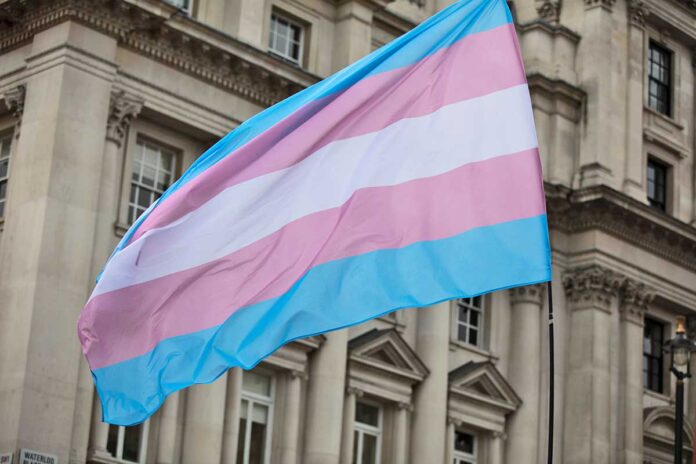Looking at the history of trans media ever since World War II, one can’t help but notice a theme: transgender people gain agency, and non-transgender people attempt to exert control to stop it.
In the 1970s, trans care—largely the domain of a handful of university-based medical centers—pressed for transgender women to be conventionally attractive, to not associate with other transgender people, and to act in stereotypically feminine ways, even as the second wave of feminism was taking hold and directly challenging those stereotypes. For all transgender people, stepping out of line with the above could cause you to lose care, being drummed out of a restrictive system.
In the 1990s, the university system was all but gone, replaced with private practices. While much of the above remained in play, the system had opened up. Still, there were two requirements to be seen by therapists, live in your preferred gender for some time to prove you were fit to have hormone replacement and surgical intervention, and go through tests to prove your mental fitness. This is where I came in.
In more recent years, while not universal, a lot of transgender care has moved to an informed consent model, where you, the trans person, may proceed without all this gatekeeping.
Yet, as you can see an increase in transgender agency, you can see an obvious pushback to transgender care over the last few years, predominantly driven by anti-trans campaigners.
Growing out of Dr. Ray Blanchard’s work, formerly of the Clarke Institute of Psychiatry in Toronto, many latched onto his theories that transgender women are either homosexual men or autogynephilic men, with the latter defined as an erotic desire to be women. As is typical, transgender men were largely discounted.
The whole mess has, of course, been used to discount trans lives as nothing more than a paraphilia.
Likewise, the notion of Rapid Onset Gender Dysphoria (ROGD) was formed by Dr. Lisa Littman, attempting to claim that many transgender youth were identifying as such due to contagious “peer pressure.” A publication from Littman on ROGD, was removed due to controversy about its methods. This has not stopped it from being pushed as the cause of a rise in trans identity over the last few years, and is still regularly cited as a reason to curtain and control trans lives.
From where I sit, both ROGD and Blanchard’s theories do little to explain the reality of transgender lives. There is little “rapid” about discovering one is transgender, but it may look like it to a non-supportive family member for whom we have hidden our trans lives from out of fear or self-protection. I, too, was accused of “rushing things” with my family, even though I had silently struggled with my trans nature for decades by the time I put voice to my experiences.
Likewise, the reductive notion that trans women are either homosexual men or autogynephilic men—setting aside that neither of those options includes our identity as women—does not line up with the lived experience of the vast majority of transgender people. Of course, Blanchard simply assumes that any evidence contrary is to be discounted as biased and false.
Now enter the Cass Review.
The Independent Review of Gender Identity Services for Children and Young People, more commonly known as the Cass Review, was commissioned by the National Health Service in England. Its main goal was to review transgender care in the UK, perhaps best known for long wait times and inadequate care. Its primary author is Dr. Hilary Cass.
Rather than finding ways to better streamline care for transgender youth in the UK, the review is largely being used to control trans lives, and put further barriers for transgender people to access care. Of particular note is that puberty suppressing medications will not be available to those who need it most: young transgender people who wish to delay puberty that is not in line with their gender identity.
One thing the Review was not able to show, and something anti-trans voices have wanted for decades, is proof that most young transgender will essentially “grow out of” a transgender identity, and go on to live non-trans lives. Indeed, most studies—studies that were discounted out of hand by Dr. Cass due to their lack of an impossible double-blind element—show that transgender people remain trans, and that most who get care show an almost abnormally high rate of satisfaction.
Dr. Cass has opted to move the goalposts on this while interviewed on NPR, claiming that transgender people simply need to continue to be studied and dissected, to weigh our lives, apparently endlessly.
“We need to follow up for much longer than a year or two to know if you continue to thrive on those hormones in the longer term,” said Dr. Cass. “And we also need to know, are those young people in relationships? Are they getting out of the house? Are they in employment? Do they have a satisfactory sex life?”
I know that Dr. Cass knows that she is not allowed in my bedroom to measure my sex life any more than Dr. Blanchard.
If we continue to live in a transphobic society, one that is, in part, driven by studies like this from Dr. Cass, then we will continue to see transgender people struggle in employment, to avoid social situations, and so on. She is, in short, attempting to fulfill a prophecy of her own creation. Also, like so many others, she is once again attempting to control the narrative of transgender lives—and control our lives in the first place.
Gwen Smith is tired of being studied. You can find her at www.gwensmith.com.
